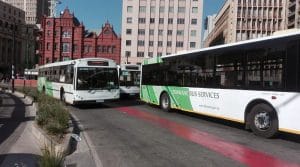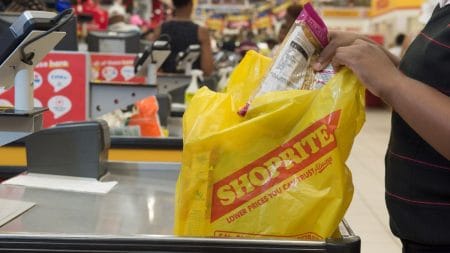On October 14, 2024, first-year Stellenbosch University students, Joel Cedras and Veer Gosai, made a startling discovery that sent shockwaves across South Africa. These computer science students uncovered widespread SASSA SRD Grant Fraud, revealing how the very system meant to provide crucial financial support to millions of vulnerable South Africans has been exploited for fraudulent purposes.
Despite their efforts to inform SASSA about the glaring vulnerabilities in its Social Relief of Distress (SRD) grant system, they were met with unresponsive communication channels and bureaucratic delays.
Exposing the Vulnerabilities in SASSA’s System
Joel Cedras and Veer Gosai are not your typical university students. Both are budding computer science experts who dedicate their free time to examining the security frameworks of both private and public sector systems. Their goal is ethical hacking — identifying vulnerabilities in digital systems to alert the relevant institutions. They give these institutions time to fix the problem before sharing it publicly.
However, the magnitude of SASSA SRD Grant Fraud prompted them to break their usual protocol and go public with their findings immediately. The Social Relief of Distress (SRD) grant, currently providing R370 per month to millions of South Africans in need, became the focal point of their investigation. The SRD grant, hailed as a potential precursor to a broader basic income grant, is critical for South Africa’s most disadvantaged citizens. But what Cedras and Gosai uncovered was a system riddled with security flaws, making it highly vulnerable to fraud.
How the SASSA SRD Grant Fraud Was Discovered
The students employed publicly available information to access the backend of SASSA’s SRD grant system. Using this data, they queried the system with 300,000 ID numbers from February 2005 at a rate of 700 per minute. One of the first signs of SASSA SRD Grant Fraud was the system’s inability to limit query rates — a basic security feature that any competent platform should have in place.
But things got worse. Out of the 82,097 people born in February 2005, the students found 74,931 applications for the SRD grant, which amounts to a jaw-dropping 91% application rate. This statistic raised immediate red flags, as it is highly unlikely that such a high percentage of people born in a single month would qualify for and apply for the SRD grant.
Further analysis confirmed their suspicions. The students tested another 500 male and 500 female ID numbers from individuals born on January 1, spanning the years 1960 to 2006. They found an average application rate of 52% across all years. However, for people born between 2002 and 2006, the application rate skyrocketed to approximately 90%, confirming widespread SASSA SRD Grant Fraud for individuals who turned 18 after the grant was introduced in 2020.
Fraudulent Payments and the Extent of the Problem
The students’ investigation revealed an even more shocking aspect of SASSA SRD Grant Fraud — payments were being made to fraudulent applicants using their own ID numbers. Despite never applying for the SRD grant themselves, they discovered that payments had been approved and disbursed to people using their identities.
This suggests a deeply flawed system, where fraudulent applications are not only possible but are being processed and paid out. Worse yet, eligible South Africans who need the grant may be denied due to the funds being diverted to fraudulent applicants. The scale of SASSA SRD Grant Fraud could be depriving countless legitimate recipients of their much-needed relief.
Survey Findings: Fraud at an Alarming Rate
To understand just how deep SASSA SRD Grant Fraud runs, Cedras and Gosai conducted a survey among 60 of their fellow students. The results were nothing short of alarming: 58 of the 60 students had active SRD applications in the system, but 56 of them claimed they had never applied for the grant. This suggests that 56 of those applications were fraudulent.
These findings hint at an organized network exploiting the SRD system’s weaknesses. SASSA SRD Grant Fraud is not limited to isolated incidents; it reflects a systemic issue within SASSA’s framework. The question arises: How was the system allowed to become so compromised? Was it intentionally designed with such weak security, or was this gross negligence on the part of those tasked with managing it?
SASSA’s Response to SASSA SRD Grant Fraud
In the wake of the students’ public disclosure on Heart FM, SASSA acknowledged the issue, albeit with downplayed urgency. Brenton van Vrede, head of grant operations at SASSA, admitted that fraud is widespread within the SRD grant system. “We do unfortunately have quite a lot of these cases,” he said during a radio interview, which many consider an understatement.
Van Vrede encouraged those who suspect fraudulent SRD applications in their name to contact SASSA’s call center to undergo biometric verification. However, this response places an undue burden on victims of SASSA SRD Grant Fraud, many of whom lack the resources or means to follow through with such a cumbersome process. Moreover, the biometric verification process could become an additional hurdle for the poorest recipients, defeating the purpose of the grant itself, which is meant to be easily accessible.
The Need for a System Overhaul
The extent of SASSA SRD Grant Fraud demands more than a few tweaks to the current system. It calls for a complete overhaul of SASSA’s SRD grant system, which has proven itself vulnerable to large-scale abuse. Rebuilding the system from the ground up may be the only way to ensure its long-term integrity. While this would be a massive undertaking, it is necessary to protect both SASSA’s credibility and the millions of South Africans who rely on SRD payments for survival.
In the short term, SASSA must reverify every grant application currently in the system. This re-verification process should include new safeguards, such as requesting the Smart ID issue date, which is used by some banks as an extra layer of identity verification. Such a measure would make it harder for fraudulent applications to be submitted and approved.
Furthermore, SASSA must ensure that its system can’t be exploited with mass queries or rapid-fire applications, which is how Cedras and Gosai uncovered the fraud in the first place.
SASSA’s Responsibility: Full Disclosure and Accountability
SASSA’s response to SASSA SRD Grant Fraud has so far been insufficient. The agency must provide a full and transparent account of what went wrong. The public needs to know who was responsible for developing the SRD system, who maintained it, and why such critical security flaws were overlooked. More importantly, SASSA must disclose how much taxpayer money has been lost to fraud and provide a detailed plan on how it intends to fix the system moving forward.
In addition to an internal inquiry, SASSA should invite external cybersecurity experts to audit its systems. This would ensure that the weaknesses that led to the SASSA SRD Grant Fraud are not simply patched over but properly addressed. There is also a need for accountability — if individuals within SASSA or external contractors are found to have been complicit in enabling the fraud, they should be held to account.
The Impact of SASSA SRD Grant Fraud on South Africans
The discovery of widespread SASSA SRD Grant Fraud is not just a bureaucratic or financial issue; it affects the lives of millions of South Africans who depend on social grants to make ends meet. The SRD grant is often the only source of income for many households, and any delay or denial of payments due to fraud could have devastating consequences.
Moreover, the discovery of SASSA SRD Grant Fraud erodes public trust in the very institutions designed to provide social safety nets. If South Africans cannot trust that SASSA will protect them from fraud or ensure that their legitimate applications are processed fairly, it could undermine future initiatives aimed at expanding social grants, including proposals for a basic income grant.
Read More: What to Do if Your SRD Grant Identity Verification Fails
The students’ discovery of SASSA SRD Grant Fraud is a wake-up call for the South African government and SASSA itself. The vulnerabilities in the SRD grant system have been exposed, and the scale of the fraud indicates that this is not an isolated incident but a systemic issue. Now, SASSA must take urgent action to re-establish the integrity of its systems and ensure that the poorest South Africans are not robbed of the assistance they desperately need.
It is time for transparency, accountability, and reform. SASSA must fully disclose the extent of the SASSA SRD Grant Fraud, hold those responsible to account, and rebuild a system that works for the people it is meant to serve.
Source: Ground Up










